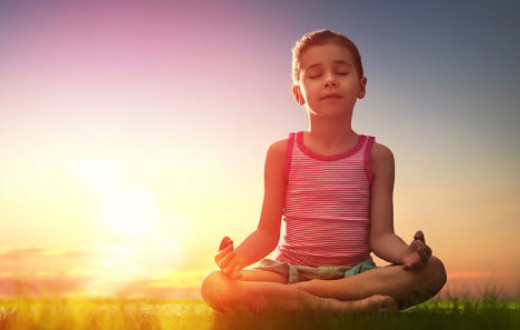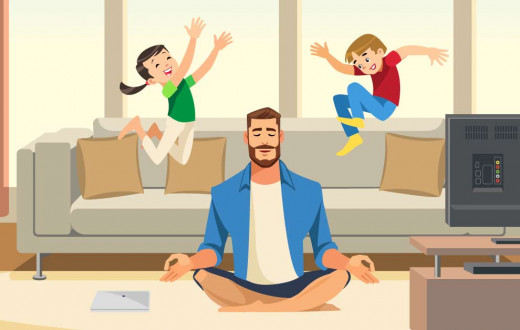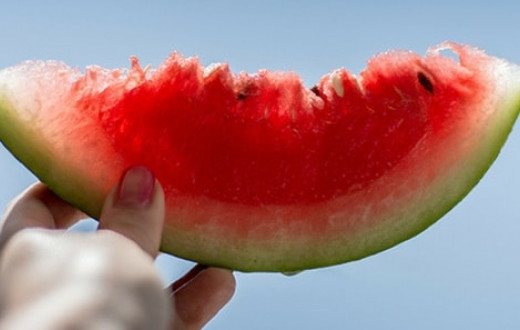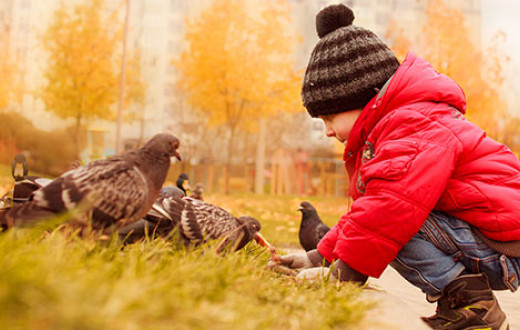Our relationship with music starts long before we’re born. The hearing sense is the first to be fully developed among all the senses. When a baby is still in the womb, it can hear sounds. A newborn exhibits happiness when listening to music. An infant hums (ah-ah-ah, ooh-ooh-ooh) while sleeping to self-soothe. Toddler babbles and routinely, often amusing themselves for long periods by producing strange new sounds (muh-muh, bah-bah).
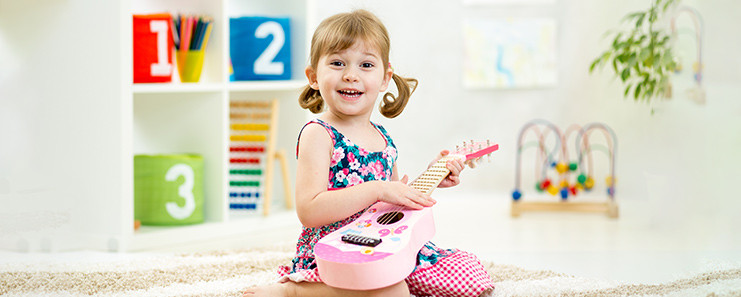
Also, research indicates that the best age to start learning music is childhood. Some of the reasons are -
The role of music in a child’s development
- In the initial three years of a baby’s life, the brain grows significantly to reach the size of an adult’s brain. These years are valuable in helping the baby realize its full potential. Listening to music seems to be one excellent way to do so.
- Music plays a pivotal role in meeting a child's educational needs as it provides a means of self-expression, giving the child an outlet for feelings and emotions.
- Besides being a source of enjoyment, music is also a means of communication with others.
- Music exposes the child to challenges and multi-sensory experiences that enhance learning abilities and encourages cognitive development.
- In particular, music can also engage cognitive functions, such as planning, working memory and flexibility.
- Music enhances mathematical, reading, listening and comprehension skills.
- Music exposes the child to culture and history while learning different musical styles.
- Music helps to develop imagination and the ability to visualize sound.
- Research has also found that while teaching music to toddlers, they show a preference for consonants over dissonant music. They prefer harmonious versions of musical pieces.
- Actively engaging with music helps children develop faster than just listening to it.
- Parents and caregivers across the globe sing to children and feel that singing and playing music can help calm babies and strengthen the bond established between babies and their caregivers.
- Music helps children to gain a sense of confidence.

When did famous Indian singers learn music?
Lata Mangeshkar, Shreya Ghoshal and M. S. Subbulakshmi started to learn music from an early age (on an average of 5 years). But a few famous Indian singers like Arijit Singh and Jagjit Singh began late. In all likelihood, the best age to start music lessons is undefinable as it depends on the signs of interest shown by the child and recognition of those signs by the parents or caretakers.
Gurudev Sri Sri Ravi Shankar says, “Knowledge, music and meditation - all three are required to make education complete.” Gurudev emphasizes the need to introduce children to diverse activities in early childhood. Knowledge nourishes the left brain which deals with science, music nourishes the right brain which deals with arts and meditation helps to balance both the right and left brain.
Dive into the world of art and culture with the World Forum for Art & Culture (WFAC) mega Kala Kamp. Especially curated weekly workshops filled with fun, laughter and creativity for all age groups. 🎨
Let’s splash colors of creativity this summer!
Watch WFAC Kathak students dancing to a traditional Kathak Tarana composed by Pt Birju Maharaj in the Art of Living International Centre.
Testimonial:
“I never knew how to sing, but now I know a bit. I enjoy singing alone and in a group at the Ganesh festival with my friends. People admire my voice and songs. I thank Chitra ji, Priya ji and Sheetal ji for having taught me singing.” shared by a wonderful young boy Ranveer. He learns to sing for the first time with Chitra Roy, an international singer in The Art of Living, in the WFCA vocal workshop.
The signs to know if your child is ready for structured music classes for kids

If you are not very sure of your kids’ inclination toward music…
- Take your kid to watch older children practice music in school or neighborhood or at a local music center. Observe their response to these musical triggers.
- Give your kid the opportunity to look at and feel the musical instruments.
- As a parent, be clear with your goal to introduce your kid to music. Do you want your child to master it, or is it just an introduction? Your goal should be based on your kid’s responses to music played in their presence.
- In the initial years of music training, simple movement activities such as musical games, swaying while holding the baby, or singing or playing an instrument for the child is better than a formally structured one.
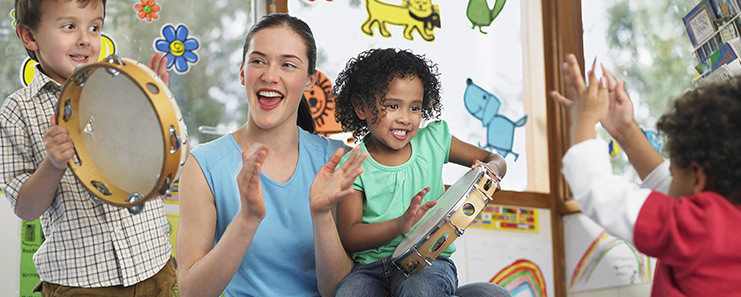
For learning musical instruments, physical maturity is essential. If you have the gut feeling that your kid is ready for formal training in musical instruments, then introduce them to a piano, keyboard, or harmonium before string instruments (guitar or violin). The finger movements involved in harmonium or keyboard are easier than in string instruments. If you feel your child is showing interest in percussion first, get them trained in two or three-piece bongo/congo, and then go for tabla, drum set, etc.
Singing songs and dancing to musical rhythms is an enjoyable and effective way of expanding your baby’s horizons.
Reference links
Music interventions and child development: A critical review and further directions
Fascinating facts about music and babies.
Related links
Find out facts in the article, “Why your kid must meditate: 7 myths debunked” of myths like, “My kid is already involved in so many activities. Meditation will be another add-on.”
“Meditation for kids – 7 short meditation techniques for children and teens” blog has age-wise segregated meditations.






